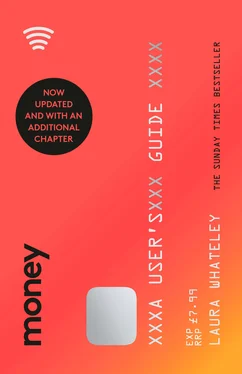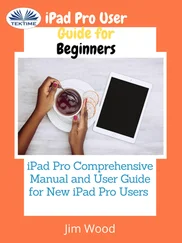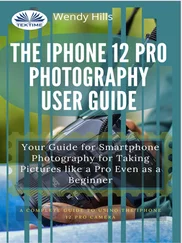Earnings matter, if only to work out whether you stand a chance of buying
Before you start browsing Zoopla it is a good idea to work out roughly how much you are realistically going to be able to borrow based on your earnings. This is only part of the picture as explained above, but a good place to begin. There are lots of mortgage calculators online that work on this basis. The rough rule of thumb at the moment, though it varies between banks, is that you can borrow about four to four and a half times your pre-tax salary. Some lenders will stretch to five times your salary, as long as it is affordable (if you are self-employed this might not apply – more below). Some banks offer a ‘professional mortgage’ with a maximum loan 5.5 times salaries if you are a newly qualified professional such as a doctor, vet, solicitor or architect. This is called an ‘income multiple’. That means if you earn £35,000 a year before tax you are unlikely to be able to borrow more than about £158,000 if you are buying alone. Now you can see why there’s a housing-affordability problem.
It is worth noting that the income multiple is the same for couples as for single applicants, so you are in a much stronger position if you buy with another person. Banks also treat ‘non-guaranteed’ income differently – items like commission payments and bonuses. This means you might get quirks where one bank actually offers you a bigger mortgage on a four-times-income multiple than another bank which is prepared to lend on a four-and-a-half-times-income multiple but does not allow for bonuses.
The maximum income multiple also varies with what LTV you can afford. Someone with a 25 per cent deposit is more likely to be able to borrow five times their income, whereas if you have just 5 per cent deposit, the maximum is unlikely to be more than four times. This maximum may also vary according to how much you earn, on the basis that you can allocate a higher proportion of your income to the mortgage repayments if you are richer. As Mr Boulger puts it: ‘Someone earning £80,000 won’t spend four times as much on toilet rolls as someone earning £20,000.’
How to get a mortgage if you are self-employed
You used to be able to apply for ‘self-cert’ mortgages, nicknamed ‘liar loans’, which allowed you, as a self-employed worker, to state your income without any actual proof of it. These were banned in 2014. If you are self-employed or a freelancer you apply for mortgages in the same ways as everyone else, but it is now a lot harder to get one, though do not give up before you have tried.
Ideally you need at least two years of accounts, and three years will go down even better. Many banks want these signed off by an accountant. You also need to show the income you have reported in your self-assessment tax return to HMRC; you can download the SA302 form and tax-year overview from HMRC’s website.
Some lenders – for example, Halifax (if you have a great credit score), Newcastle Building Society, Kensington and Precise Mortgages – will consider those who have been self-employed for only a year. Smaller building societies tend to be a better bet: they are less likely to pull ‘Computer says no’. You may also find it easier if you were with the same business as a full-time employee before you started going freelance.
If your earnings have been rising, banks will usually take your average income for the past two or so years. If it has fallen, they will probably use the latest and lowest figure of earnings. The best thing to do is apply to a lender you know will be most happy to offer you a deal given your specific circumstances. A broker can help matchmake. If you are self-employed, take extra care with spending in the run-up to a mortgage application. You want to act especially frugally for at least six months beforehand.
What is ‘stress testing’ and why the future matters as much as the present
Post-credit-crunch lending rules now also require banks to make sure that a mortgage is affordable not only right now but also in the future. The result is ‘stress testing’. You may be able to comfortably meet mortgage repayments on your existing salary with current low interest rates, but what if interest rates rise? You will only be able to borrow as much as you can happily afford with an interest rate of 3 per cent higher than it is today, usually compared with a bank’s standard variable rate (more on what that is in a minute) at the point at which you apply. That means most first-time buyers are stress-tested on the basis of a mortgage that might fall payable with interest of 7 to 7.5 per cent.
This protects you from overstretching yourself, but also means you are limited with how great a risk you can take on borrowing, even if you feel confident that your earnings are going to increase significantly in the future.
What is your credit score and why does it matter?
When it assesses whether or not you can afford a mortgage, a bank will score your creditworthiness based on information it can gather from your credit history or credit file as well as your bank statements. Your credit history is a record of your interactions with other financial companies: banks, energy providers and so on, kept by credit-reference agencies. Your prospective lender is looking for evidence of past borrowing behaviour to assess whether or not you will be a well-behaved borrower going forward.
You are also judged on things like how long you have been with the same employer, how long you have lived at your address, and how long you have had your bank account.
Most banks, building societies and financial companies have their own arcane bespoke credit-scoring system, based on what factors they deem important as a yardstick of reliability. No one is quite sure how they all work, how they are compiled, and how banks use them. Underwriters at banks, that is the team that assess risk, will not reveal how they compile and assess credit scores because they are ‘commercially sensitive’, so you can be rejected for having, in their view, a bad score, without knowing why, or being able to argue that their criteria are wrong.
You do not have one single credit score – this is a myth – but UK banks use three credit-reference agencies in the UK for information: Experian, Equifax and Transunion. They compile their own credit scores based on their own assessment of your credit history, and you can check them to get some idea of whether or not you look like a worthy borrower. They are useful, but just guidelines.
Despite their opaque nature, credit scores are annoyingly important, and used for everything from overdrafts and credit cards to mobile-phone deals and, crucially, mortgages. I received letters in my role as consumer champion at The Times from people on the verge of losing a house they wanted, or unable to secure an affordable mortgage, because of minor bill infractions or disputes, like forgetting to clear a small sum owed to an energy company on an account for a shared flat after everyone moves out, or missing a mobile-phone payment. These have resulted in letters from debt collectors, which damaged the reader’s credit history.
One man thought his gas account had been put on hold over a bill he did not think he owed while it was investigated; instead it had been passed to debt collectors, and a ‘late-payment’ notice added to his credit report. As a result he was turned down for a cheaper mortgage, and estimated that it would cost him over £10,000 more.
One first-time buyer couple applied for three new bank accounts – a current account each, and a joint account with the same bank that had agreed to lend them a mortgage – because they were told it would simplify things. Instead their credit score was damaged by the fact that they applied for too many financial products at once, even though the bank was getting more of their business. Totally bizarre, but really expensive, they could no longer apply for a 95 per cent LTV mortgage; they had to find another £12,000 for a deposit for a 90 per cent one. Luckily their grandparents bailed them out, but others less fortunate would have lost the house.
Читать дальше












